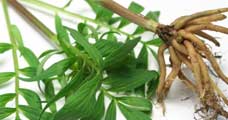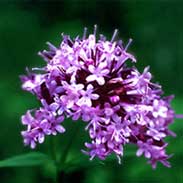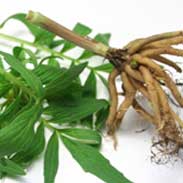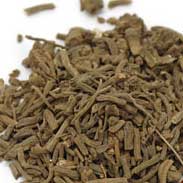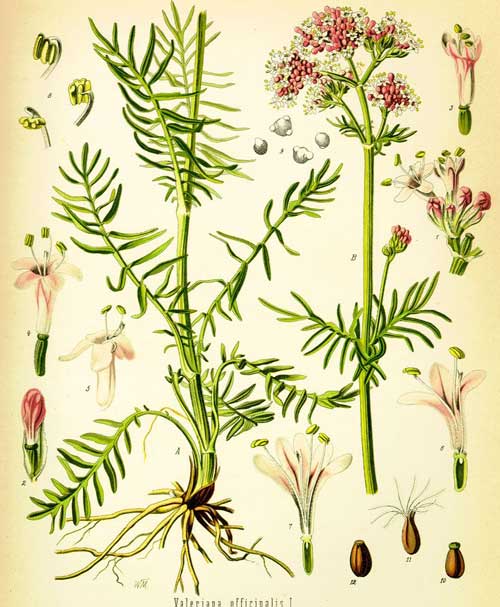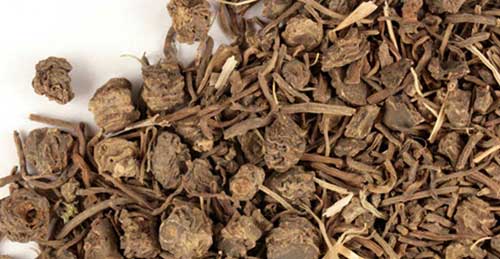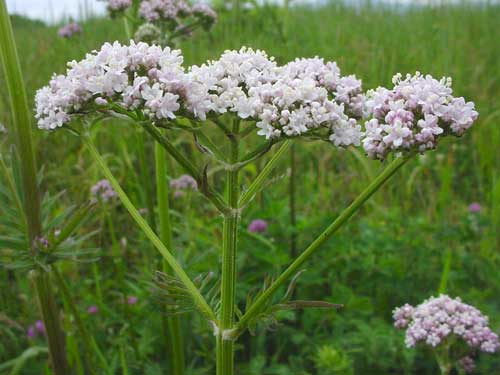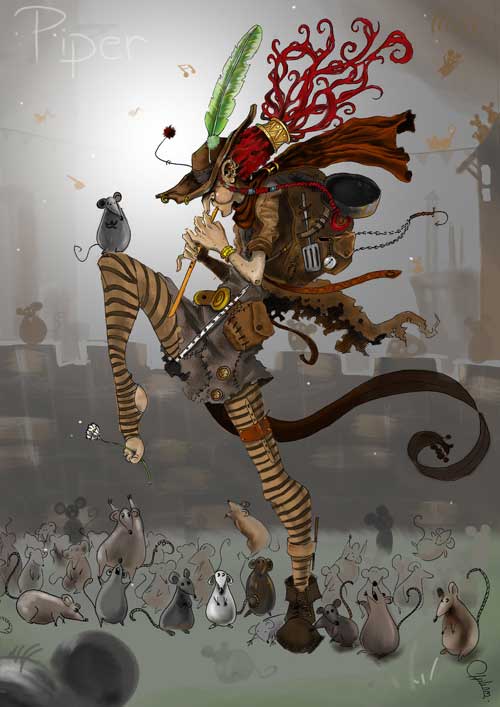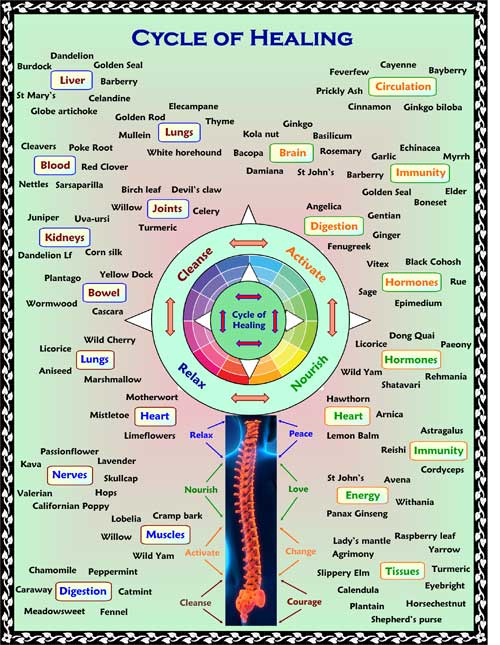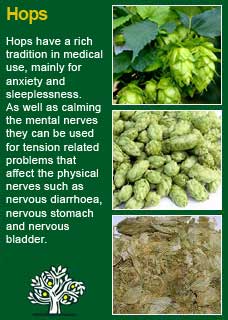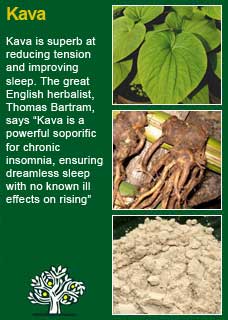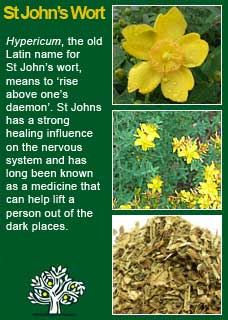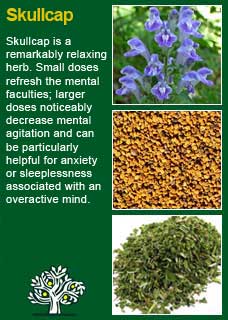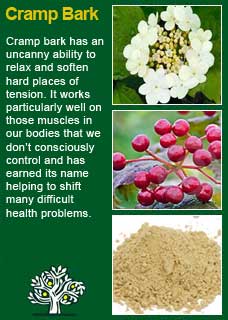
|
|
||||
| Our Pages ABOUT CONSTITUTIONAL MEDICINE
|
Valerian in herbal medicine is the root of a long-lived plant that grows up to 1.5 meters tall in moist ground all over Europe right up to the Arctic Circle. Valerian only produces a short root but this in turn sends out plenty of ‘runners’. The roots and runners of Valerian are nearly odourless when fresh but after drying they develop the characteristic smell that tells you exactly what you are dealing with!
Valerian's old name ‘All-heal’ gives you an indication of just how much regard this herb was held in from ancient times. The name 'Valerian' itself comes from the same origin of the Latin word for ‘valere’ meaning to 'be well', or 'be strong'. Similar to the root of the word 'valour', for this is a herb that was known to help a person have courage. as it was believed to markedly increase a person's strength and courage. Valerian was used in the First World War to treat soldiers suffering from shell-shock; likewise, it was prized by Londoners during the Blitz in World War two. The main use of Valerian in in recent times has focused on improving sleep but it is also widely used for nervousness, anxiety, cramps and headaches. Interestingly, whilst most people in modern times find the aroma of Valerian to be somewhat challenging, in older times it was obviously thought of as an evocative and at least somewhat desirable scent, as it was used since Biblical times as an incense, where its name was 'Spikenard' In English folklore, Valerian was believed to have aphrodisiac qualities and a young woman who carried a sprig of it was said never to lack ardent lovers! It was also believed to possess the ability to increase psychic perception. In the Middle Ages Valerian was widely used to treat epilepsy. The German abbess/herbalist St Hildegard of Bingen wrote warmly on Valerian for sleep in the 12th century and in the 16th century John Gerard wrote that 'no broth or medicine be worth anything if it did not contain Valerian' and recommended it for such problems as 'chest congestion, convulsions, bruises and falls'. The influential early American herbalist Samuel Thompson called Valerian 'the best nervine tranquilizer known' and in modern times David Hoffman writes it is 'one of the most useful relaxing herbs'. F Ellingwood writes 'Valerian is not a narcotic. Its influence upon the nervous system is best obtained when the circulation of those centers is inactive and feeble, especially when there is a paleness of the face and the skin is cool. It is directly indicated in anxious conditions of whatever character with feebleness; with nervous excitement, morbid vigilance, and in nervous headaches with some pallor. It is excellent in the anxiety and nervous disturbances incident to the menopause. Its general soothing effect in all these cases is desirable. It controls distress and imaginary pain and produces quiet, permitting sleep and rest' H Felter writes 'Valerian is a good cerebral and spinal stimulant. It also stimulates the gastro-intestinal secretions and favors digestion, unless given in too large doses or too long continued. It is one of the best of calmatives for that collective condition termed “nervousness”. To act well it should be given when the brain circulation is feeble and there is mental depression and despondency. With such symptoms it proves useful in anxiety, hypochondria and nervous headache. It is one of the best medicines we possess in the treatment of chorea (a neurological disorder characterized by jerky involuntary movements affecting especially the shoulders, hips, and face) In mental depression, due to worry or imaginary wrongs, Valerian is an admirable drug' The British Herbal Pharmacopoeia (BHP) describes the actions of Valerian as 'sedative, mild anodyne, spasmolytic, carminative, hypotensive'. It says it is indicated for 'excitability, insomnia, hypochondriasis, migraine, cramp, intestinal colic, rheumatic pains & dysmenorrhoea' and specifically indicated for 'conditions presenting with nervous excitability'. The BHP recommends a dose of 0.3-1 gram or by infusion, or 0.3-1ml of the 1:1 liquid extract in 60% ethanol, or 2-4 mls of the 1:5 tincture in 25% ethanol. Thomas Bartram writes that Valerian is 'one of Nature's gentlest, non-toxic, non-addictive tranquilisers. It favourably influences the central nervous system, acting as a natural relaxant to the higher nerve centres' He suggests uses for it including 'nervous tension, excitability, convulsions in children, sleeplessness, restlessness, palpitation, high blood pressure, hypochondria, irritability, excessive nerve stress, mental confusion, tensive headache, migraine, menstrual pain, muscle and intestinal cramps, bronchial spasm. As effective as benzodiazepines in relieving anxiety states. Valium and other benzodiazepine addictions - to assist withdrawal without evidence of dependence on the herb or potential to abuse it. For menopausal restlessness, for tension headaches and for insomnia' Bartram recommends a decoction of half to 1 tsp to cup of cold water, covered and allowed to steep overnight or for 8 hours, or an infusion of one tsp to a cup of boiling water, steeped for 10-15 minutes, or a dose of 1-3 mls of the 1:5 tincture. Rudolf Weiss writes about the tincture that 'it is the most widely used preparation and is always useful, provided that the single dose is not counted in drops but that half to one teaspoonful is given (approx 2-4 mls), and indeed sometimes two teaspoonfuls at one time. Valerian tea can also be effectively enhanced by adding a teaspoonful of the tincture to a cup of the tea'
Valerian has had a high amount of scientific research so we have some idea of exactly how it might be able to help. Substances in Valerian called valepotriates have been shown in experimental models to improve co-ordination, relax muscle tissue and decrease anxiety. Valerian has also been the subject of a number of high quality clinical studies. Some highlights of these are summarised below: ~ A randomized double-blind clinical trial showed the Valerian tablets (equivalent to 3gms dried herb) was as effective at treating insomnia as the powerful Valium type sedative Oxazepam (10mgs) but there were no morning after adverse effects with the Valerian as opposed to the Oxazepam (Dorn M: Forsch Komplementarmed Klass Naturheilkd 7(2):79-84,2000) ~ The authors, titles and the 'where-and-when' published of over 40 further studies and articles on Valerian are listed in a PDF found here
No herb suits everyone and for a small percentage of people Valerian will be felt to be stimulating rather than relaxing. This mostly happens in the Eagle constitution (hotter and dryer) and is thought to be because the herb is too heating for them. I have further thoughts about this just below, but will note here that a great many Eagles do extremely well on Valerian, especially when it is combined in the traditional way with another great relaxing herb; Hops. However, some individuals clearly show a strong sensitivity to Valerian regardless of how much they take or what they use it with, and for them the use of herbs such as Skullcap or Kava, instead of Valerian, will likely be much more agreeable and there may be nothing to be gained by trying to keep pushing forwards with the Valerian. That said, for the person who gets the 'paradoxical' stimulating effect from Valerian, depending on how open I perceive them to be, I may put it to them to see if they are willing to go down to several small doses during the daytime, rather than taking it in the evening or at night. In a number of cases now when we have done this, I have seen it happen how the herb has had a profound action on healing and balancing the nervous system and my conclusion is that they were simply too 'wired and tired' and the potent and fast acting influence of the Valerian was releasing enough blocked up tension that they felt a resurgence of energy rather than a need for sleep. Such an effect can be channelled wisely if the person is willing to be open to experimenting with taking the herb earlier in the day. The worst thing that can happen with Valerian is that it just doesn't have an effect. The person who responds in a way that they feel is 'too strong or wrong' may in fact have found a great ally if they will only allow their relationship with it to evolve...' Lastly, I am of the long practice now of recommending to my patients to just use it for as long as they feel they need it. In most instances, the herb works very well, and a much better quality of sleep is achieved and maintained over consecutive nights within a couple of weeks, give or take. At this point, it is perfectly suitable to put the herb aside until it may be needed again, at some future time perhaps. There are no addictive qualities to Valerian, it has always seen to be able to be stopped without any difficulty. As soon as the person is ready, they can simply stop taking it and must not be in any fear of not being able to sleep without it. Like many other aspects of our health and lives, the quality of our sleep is, more than anything, a matter of habit. Let Valerian help you make a better habit, and then keep it up by yourself.
For some years now, against this proven and safe way of herbalism, there has been a rising tide of excessive caution and scare-mongering in many parts of the world. The same authorities that, not so long ago, decried herbal medicines as ineffectual, have now taken up a different adversarial position; that they are dangerous substances that should only be prescribed by Doctors, who of course have zero training in them. Unfortunately, the same unnecessary fear and worry has crept into many natural health websites and popular publications on herbs. Herbs that we have safely used for thousands of years, that have no reports of adverse reactions in the medical literature despite widespread use by millions of people, are suddenly described as contraindicated because of something that should have been seen as completely unimportant, or at the utmost a merely theoretical concern, such as a laboratory study on one of the herb's constituents to use an all too common example. I wonder sometimes if the writers of such articles feel that the herb will be more deserving of respect if it is thought to be a little bit dangerous, in other words more like a drug than something that has simply come out of the earth and been used by ordinary people for generations beyond count. There is just so much misinformation about herbal medicine on the internet now. Ludicrous claims and cautions abound in equal measure; it seems like one group are trying to make money out of the public whilst the other are busily trying to scare them off. I have to believe that the kind of reader who takes the time to read pages on herbs that are as extensive as this one is much less likely to be swayed by marketers or misinformers. I hope that you will keep your wits about you if you get conflicting opinions from people who have never really got to know these herbs, who have never worked with them, or learned how to use them safely and effectively. I want to remind you that the reason that herbs can never be patented and owned by any individual or corporation is because they are, and always will be, the People's medicine. They belong to all of us and it is my great hope in sharing this work that you will learn how to use them wisely for yourself, and the people you care for. Be safe, but do not be afraid.
I love Valerian and it is often the first place I go to for help when someone cannot sleep. People often come in with complex health problems but if they say they aren't sleeping well then that will usually be the matter that goes straight to the top of the list. The reason for this is that, as soon as a person improves their sleep, their innate healing force will immediately increase, both the mind and the body does much of its healing in sleep. When you give Valerian to someone who is tightly wound you can usually see them palpably ‘uncoil’ after a while. The effects of such a reversal of tension can be profound on a person's health; improved sleep, better mood, better self-healing. In most cases, Valerian must be given in a strong enough dose for it to be felt palpably as a relaxing agent. For most people this will equate to between half to one tsp of its tincture, or between 2-4mls. Sometimes this dose needs to be repeated twice, an hour or so before bed, and then just before sleep, to get the maximum effect and to help create a quick 'shift' in a stuck pattern of insomnia. This said, 'most people' is not all people, and it is also clear that some individuals are particularly sensitive to Valerian. It can work very well for them, but they need to take a smaller amount, or they can feel overly affected by it. When a person knows themselves to be very sensitive to medicine, they may be wise to start at low doses with Valerian, e.g. as little as 10-20 drops of the tincture, and gradually build up the amount as they see how they respond. See my note above in the section on 'safety' if you feel you get a paradoxical stimulating effect from the Valerian. This does not necessarily mean that it is the wrong herb for you, quite the opposite, but you may need to take it during the day rather than at night. The smell and taste of the tincture of Valerian is problematic for some people, the tea even more so, we also often use concentrated capsules of Valerian, we have one that is combined with Hops and a different one that is combined with Kava. Many patients report much improved sleep and well-being with these products and they are certainly easy to take. Nevertheless, as strong and distinctive as the smell may be, it shouldn't be assumed that a person cannot get used to it and, interestingly enough, when I give my patient a quick smell of my little tester bottle to see how they respond and whether we might be fine to use a tincture, more say they actually like the smell than those who say they don't... If you who are reading this are studying herbal medicine or just have your own good reasons to want to know this plant ally much more deeply then I warmly encourage you to take a dose of Valerian in tea or tincture and then, with a quiet and attentive mind, observe for yourself how it makes you feel. I do not think you will at first feel Valerian very much in your head. although that might come later, rather it firstly works at helping to relax the deeper subconscious tension that we hold in our bodies. Observe how it affects your breathing and your heart rate and how it goes into the core of your body and lingers there! This ancient way of 'experiential' learning can do more to help you truly understand the 'action' of the plant than any amount of academic study, but you will have to try for yourself to see what I mean! Further to this, if you would like to learn more about the ancient art of pulse testing, a simple but powerful way to ask the intuitive intelligence of the body for its responses to a herb by feeling the pulse whilst giving a tiny dose by mouth, read here Valerian combines perfectly with Hops or Kava for insomnia, with St John's wort and Skullcap for moodiness and fatigue and with Cramp bark for excess physical tension.
The famous story of the Pied Piper comes from a German town called Hamelin where it was plagued by an army of rats in the 13th century. The story goes that they had tried every other avenue to no success and so the town elders were willing to take on the contract of a flute player (the Pied Piper) when he promised he could rid their town of rats. When he was successful at charming away the rats by leading them away with his flute the elders refused to pay him on his return whereupon he performed the same charm on the children and led them all away too! What the English versions of this story miss out is that in the original version the Pied Piper gave the rats (and then later the children) extracts of Valerian root. Valerian was understood to have hypnotic properties for cats, rats and children and in using it he was able to put them under his spell (check out how cats react to dried Valerian root if you want to see some harmless herbal magic in action!)
Much of the information here about the traditional uses of Valerian is consistent with the model of thinking whereby one may treat problem A with plant B. There is value in this approach, especially in how it helps us pass on useful knowledge to one another, but it falls short in one vital area; and that is that people are not all cut from the same cloth! Something that works brilliantly for one person does less for another -- why is this? Part of the reason is that people vary in their constitutions as to whether they are either hotter or cooler and, at the same time, either dryer or damper. This useful and rather fascinating subject is introduced further here Another big part of using the right herb when it is most needed comes from understanding the need to treat what is going wrong for the person that had led up to their getting a health condition. In this light, Valerian can particularly offer its benefits when a relaxing action is needed in the 'cycle of healing', more about this here
Please understand that I cannot advise you, including on products or dosage, without seeing you in person in my clinic but for ideas
on how you might find a good herbalist in your area read here |
|
|
© 2011 R.J.Whelan Ltd
